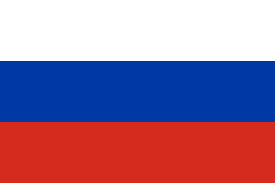Putin sounds alarm bells after seizing control of Iran gas in 'final act to secure Europe'







Putin sounds alarm bells after seizing control of Iran gas in 'final act to secure Europe'
According to the terms of the deal, the multi-trillion-dollar Chalous gas field will be carved up between Russian, Chinese and Iranian companies. Earlier this year, Iran's Khazar Exploration and Production Company (KEPCO) said the field could hold about 3.5 trillion cubic meters of gas or a quarter of the 14.2 trillion cubic metres of gas found in the South Pars field in the Persian Gulf. However, financial institutions in Germany, Austria, and Italy are reportedly eyeing up potential investment in the project, which may indicate the field's reserves are bigger than initially thought.
Russia's negotiators have managed to secure a majority share in the gas field, despite it sitting within a section of the Caspian Sea controlled by Iran.
The landlocked body of water is estimated to sit on top of some 292 trillion cubic feet of natural gas.
A "senior Russian official" who was reportedly involved in negotiating the deal, told OilPrice.com: "This is the final act of securing control over the European energy market."
Europe relies heavily on third country imports for energy, with Russia being the biggest supplier of crude oil, gas and fossil fuels.
According to 2019 data published by Eurostat, the statistical office of the European Union (EU), gas accounted for about 27 percent of all energy imports.
And about 41 percent of that gas came from Russia, followed by Norway (16 percent), Algeria (eight percent) and Qatar (five percent).
Eurostat warned: "The stability of the EU's energy supply may be threatened if a high proportion of imports are concentrated among relatively few external partners."
This threat was highlighted in recent months after the global energy crunch caused gas prices across to Europe to hit record highs, prompting fears of a full-blown energy crisis this winter.
© GETTY Oil and gas rigs seen in the Caspian Sea
Russian President Vladimir Putin has been accused of exacerbating the issue to gain political leverage over the economic bloc.
In particular, Moscow was said to "weaponise" gas supplies to push through the controversial Nord Stream 2 pipeline, which runs directly to Germany and bypasses Poland and Ukraine.
President Putin has said earlier this year that approving the pipeline would be an "obvious" way of stabilising the market.
He said: "Of course, if we could expand supplies along this route, then, 100 percent, I can say with absolute certainty, the tension on the European energy market would significantly decline, and that would influence prices, of course."
However, German regulators have suspended the approval process for Nord Stream 2, and the process is not expected to resume until March next year.
Now, Russia's latest dealings in the Caspian Sea were met with intense backlash as Iranians took to social media to warn of Russia's "gas colonisation".
Twitter user Kiarash Farasat said: "Today I am talking to European leaders, the Chalous gas field in Iran has as much gas as the consumption of the whole of Europe for fifty years.
"The terrorist government of the Islamic Republic wants to sell that gas field to Russia to continue its rule, and Russia in addition to the gas will sell to Europe many times over, will mantain its colonisation of Europe.
"You Europeans, if you want to get out from under Russian gas colonisation, you must respect the will of the Iranian people to change the regime, and stand by Iranian people.
"In that case, we, the people of Iran, will secure 50 years of European gas with a win-win agreement and mutual respect."
Despite the recent turbulence in the European markets, gas prices eased on Thursday.
Oil prices also fell to a six-week low after China said announced it will release strategic reserves.
Reference: Daily Express: Sebastian Kettley
Articles-Popular
- Main
- Contact Us
- Planetary Existences-2
- Planetary Existences
- TWO REVELATIONS-2
- The Two Revelations
- Jeffery Epstein - The Saga - 9
- Jeffery Epstein - The Saga - 8
- Jeffery Epstein - The Saga - 10
- Universality of Initiation
- The Participants In The Mysteries-2
- The Path Of Initiation
- Initiation and the Devas
- Discipleship - Group Relations - 2
- Impeachment Investigators Subpoena White House - Ukraine
- The Fourth Way - Study of Oneself - P.D.Ouspensky
- The Probationary Path - 2
- The Final Initiation
- The Succeeding Two Initiations
- The Participants In The Mysteries
- Discipleship - Group Relationships
- Discipleship
- Jeffery Epstein - The Saga - 7
- The Fourth Way - Wrong Functions - P.D Ouspensky
- Statues are a mark of honour. Like Edward Colston, Cecil Rhodes and Oliver Cromwell have to go
- Jeffery Epstein - The Saga - 6
Articles - Latest
- Tory MP resigns after demanding £6,500 to pay off 'bad people'
- Richard Drax to earn millions from sale of Barbados slave plantation
- Met apologises to Stephen Lawrence’s mother for broken promise
- Greek and Turkish delegations meet in Athens as part of efforts to improve often strained ties
- Why £2.5 billion from Roman Abramovich's Chelsea sale STILL hasn't been paid to Ukraine war victims - explained
- Ex-Scottish leader Sturgeon's husband charged with embezzling party funds
- Ousted Myanmar leader Suu Kyi moved from prison to house arrest due to heat
- Vietnamese property tycoon sentenced to death in $27bn fraud case
- All seven British terrorist co-conspirators of al-Qaeda 'dirty bomb' mastermind Dhiren Barot are freed after serving just HALF their jail terms: Thugs were caged for a total of 136 years in 2007 over terror plot to kill hundreds in London and New York
- Forgotten contributions from black Caribbeans that made Britain great before Windrush
- Former US ambassador sentenced to 15 years in prison for serving as secret agent for Cuba
- Mali's junta bans the mMedia from reporting on political activities in a deepening crackdown
- US lawmakers, activists urge action on migration from, firearms to Haiti
- Ofcom launches investigation into David Lammy’s LBC radio show
- NATO needs to take punitive measures against Erdogan, here's why






